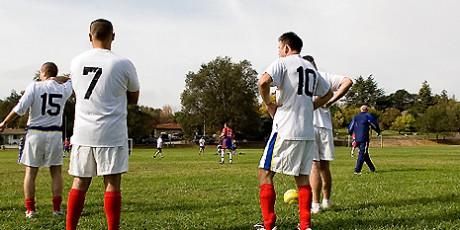Homophobia in Sport Inquiry Report released
12th February 2017

‘Homophobia remains a problem in sport across all levels and sport appears to be well behind society as a whole when it comes to tolerance and acceptance as well as LGB visibility.’
The House of Commons Culture, Media and Sport Committee has released the final report of their Homophobia in Sport Inquiry today. The full report can be read here.
The report acknowledges that sport lags behind other areas where significant legal, civic and social progress has been made and states that ‘the problem is not going away.’
At LEAP Sports we welcome the report and the contribution that it can make to ongoing work in this area. Amongst the many findings and recommendations of note, the report highlights:
- The effects of low participation on LGB youth, pointing particularly to the high numbers who feel the need to make a choice between coming out of continuing to participate.
- The links between young people’s experiences in PE and their participation in sport in future years.
- The need to treat offensive terms and language in the same way as racist and sexist language and the damage homophobic language can do.
- The responsibility of sports clubs for the wellbeing of their members and players.
- The specific issues which exist within football and the need for clubs to take tougher approaches.
- The recognition that LGB and T specific sports clubs and specific initiatives are making great and positive contributions to inclusion and participation.
- The need for training and guidance for everyone involved in clubs, including fostering straight allies.
- Specific mention of roller derby and women’s football as good practice.
- Recognition of LGBT fans groups.
We are also disappointed by some of the limitations of the report:
- Some great people, campaigns and initiatives were singled out for contribution and discussion whilst many other trailblazers and great practice initiatives containing good learning were overlooked.
- There is no focus on many of the specific barriers to access and participation for trans, intersex and gender variant people within the report, and no recommendations around the need to look at this area.
- The report does not recognise the different geographical contexts, especially the differences in city/urban/rural experiences, or any specific Scottish context.
Overall, we look forward to seeing many of these recommendations realised, and further contributing to the opportunities which that presents to ensure that everyone is able to access, participate and excel within sport.

